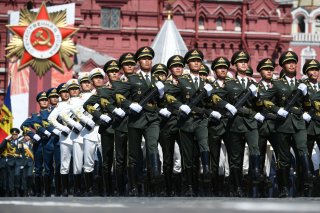How America Squandered Its Cold War Victory
Military force is indispensable to keeping the peace.
While we know what happened since 1991, we may still not appreciate “why?”
First, lest we forget, Reagan warned in his 1989 farewell address that Americans must not become complacent. Liberty is fragile, he said; it needed to be continually protected, and could be lost in a single generation.
Second, the U.S. military needs to be strong not to fight wars but to deter them. Deterrence can be markedly strengthened as it was after Desert Storm and the liberation of Kuwait, or can be markedly weakened, as it may very well have been after the precipitous U.S. withdrawal from Afghanistan. You cannot modernize your military overnight as conflicts are often going to be reflective of going to war with the army you have. Expert analysis on Ukraine highlights the failure to invest in Ukraine’s Air Force and air defense in pursuit of a sanctions-centric doctrine.
Third, U.S. foreign policy elites suffer from a deficit of both imagination and will. We get enthralled by wrongful ideas. Dan Gallington explains we assumed very soft targets like the trade towers would not be attacked; that the Cold War was over and thus military modernization was unnecessary; that terrorists had legitimate grievances and were not directed by terror-sponsoring states bent on conquest.
Finally—and this may be the most important answer to determining “what happened?”—humankind’s normal condition is not peace. Ironically, military force is indispensable to keeping the peace. As Kissinger explained, diplomacy without the threat of force is without effect, or as the late Wyoming Senator Malcolm Wallop quipped, “diplomacy without force is but prayer.”
Peter Huessy is Senior Fellow at the Hudson Institute and President of Geostrategic Analysis. These words are his own.
Image: Reuters.

